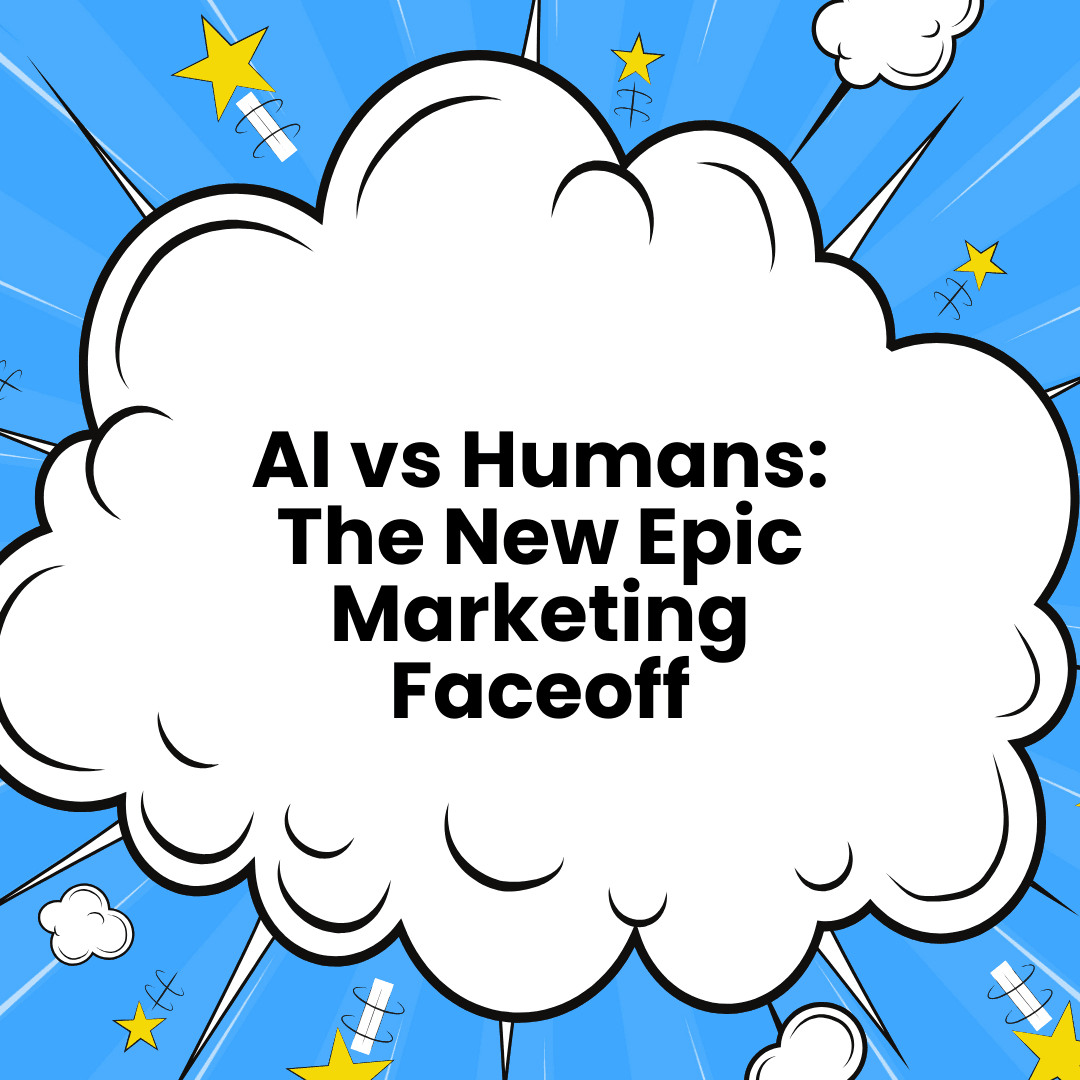AI and humans each have strengths in marketing. As AI grows, businesses use it, but human creativity remains crucial. Let’s explore both.

The Rise of AI in Marketing
AI has become an essential tool for marketers in recent years. With its ability to analyze vast amounts of data, AI provides insights that help businesses understand customer behavior and predict trends. Tools like chatbots, recommendation engines, and programmatic advertising rely heavily on AI to personalize experiences for customers. As a result, AI-driven marketing has proven to increase efficiency and reduce costs.
Pros of AI in Marketing:
- Data-Driven Decisions: AI excels at analyzing large volumes of data to extract actionable insights, leading to smarter decision-making.
- Automation: AI automates tasks such as email marketing, ad targeting, and customer segmentation, saving time and resources.
- Personalization: AI can create highly personalized experiences for users, increasing customer engagement and conversions.
Cons of AI in Marketing:
- Lack of Emotional Intelligence: AI can’t understand human emotions and might miss the subtleties that make marketing campaigns resonate on an emotional level.
- Creativity Limitation: AI can optimize, but it’s not as good at coming up with innovative ideas and unique strategies.
- Dependency on Data: AI relies heavily on historical data, which means it might struggle to adapt to sudden changes in market trends.
Despite its many advantages, AI has its limitations. For instance, it lacks the emotional intelligence that humans naturally bring to marketing. While AI can analyze patterns and data, it struggles with understanding the deeper emotional needs of customers. This is where human marketers step in.
Human Creativity and Intuition
While AI can optimize ads and automate processes, humans excel in areas requiring creativity and emotional connection. Humans can craft compelling stories that resonate with audiences, design engaging content, and think outside the box. Creativity is something that AI still cannot fully replicate. For example, a marketing campaign that connects emotionally with people often requires a level of empathy and understanding of human behavior—traits that AI lacks.
Moreover, humans are skilled at adapting to cultural shifts and market changes. Marketing trends are always evolving, and humans are better at recognizing and responding to these changes. AI, on the other hand, depends on data to make decisions and may struggle to adjust to unpredictable shifts.
Pros of Humans in Marketing:
- Creativity: Humans are the driving force behind fresh, creative ideas that capture attention and build strong connections with audiences.
- Emotional Connection: Marketers can tap into human emotions and craft stories that resonate deeply with customers.
- Flexibility: Humans are adaptable, making it easier to pivot strategies based on emerging trends or customer feedback.
Cons of Humans in Marketing:
- Time-Consuming: Human-driven processes, like brainstorming and content creation, can be slower and more resource-intensive compared to AI.
- Prone to Bias: Humans may have biases or assumptions that influence decision-making, potentially leading to less objective outcomes.
- Limited Data Processing: Unlike AI, humans can’t process and analyze massive datasets in real time.
How AI and Humans Can Collaborate
Instead of seeing AI and humans as rivals, businesses can use both to complement each other. AI can handle the data-heavy tasks like customer segmentation, A/B testing, and optimizing ad performance. Meanwhile, humans can focus on strategy, creative direction, and building relationships with customers. This partnership can lead to better decision-making, improved customer engagement, and increased ROI.
For instance, while AI can generate personalized recommendations for products based on user behavior, a human marketer can analyze these insights and craft a compelling narrative around those products. In this way, AI makes the marketer’s job easier, and the marketer adds value through creativity and emotional understanding.
The Future of Marketing: Collaboration Over Competition
Looking ahead, it’s clear that AI will continue to evolve and play a significant role in marketing. However, it is unlikely to replace humans entirely. Instead, the future of marketing lies in the collaboration between AI and human expertise. As businesses embrace AI tools, they should also nurture their teams’ creativity and emotional intelligence.
In 2024, successful marketers will understand the strengths of both AI and humans and use them to their advantage. By leveraging AI for data analysis and automation while allowing human marketers to drive creativity and emotional connection, businesses can create marketing campaigns that truly resonate with customers.
Conclusion
In conclusion, the battle between AI and humans in marketing is not a competition but rather a collaboration. AI brings efficiency, precision, and data-driven insights, while humans bring creativity, empathy, and adaptability. By combining these strengths, marketers can create more effective, personalized campaigns that drive results. As AI technology continues to advance, the partnership between AI and humans will only grow stronger, leading to a more dynamic and successful marketing landscape.
Ready to harness the power of both AI and human creativity? Contact us today to integrate these tools into your marketing strategy and watch your business thrive!

